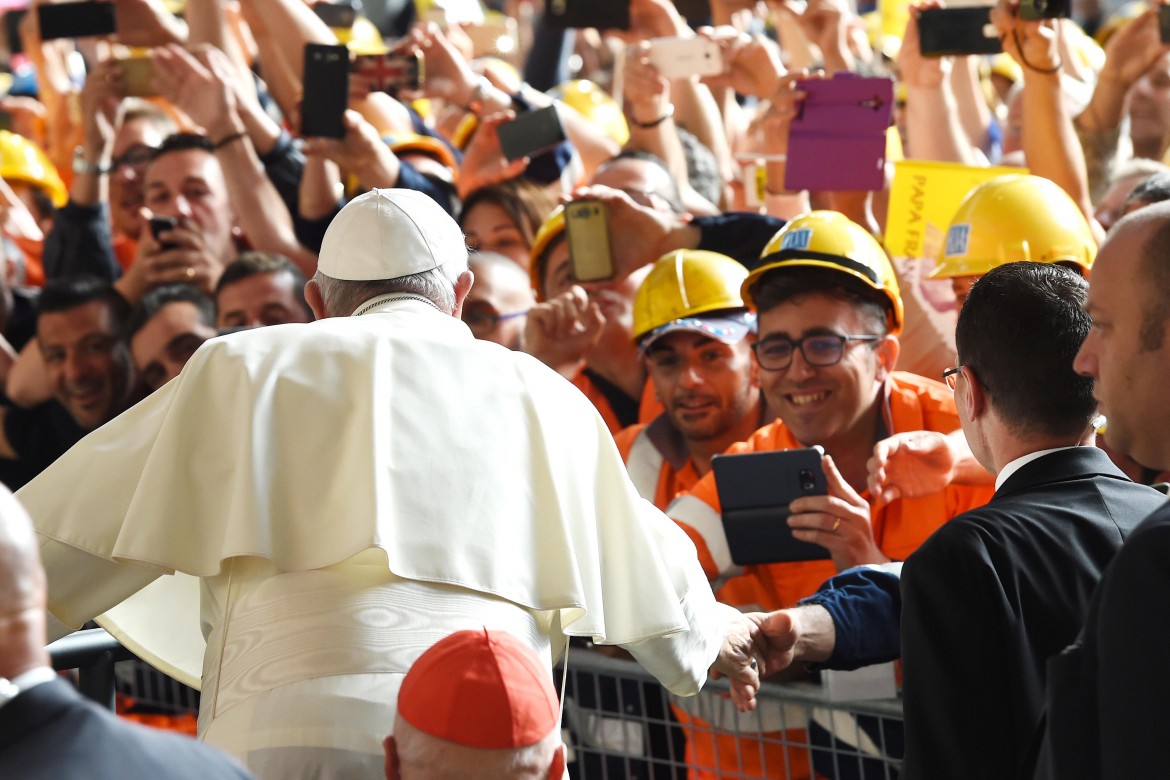Commentary
Five years with Francis, the people’s pope
Bergoglio’s papacy is not a break with tradition, but a clear change of pace, which showed itself in the full measure of its radicalism on the occasions of the Pope’s addresses to the World Meetings of Popular Movements in 2014 and 2016.

Michel Foucault wrote that the “pastoral power” of the Church was one of the structures on which the Western notion of “governmentality” was built. It is commonly thought nowadays that ever since the 18th century, the Church has largely lost this prerogative, under attack by the phenomenon of secularization and in tandem with the loss of its political power.
However, one possible interpretation of the papacy of Pope Francis can lead one to question this accepted chronological account.
Concern about Bergoglio’s difficulties in trying to enact structural reforms has become a leitmotif among progressive circles within Catholicism, who are rightly anxious about what will happen after the end of this papacy.
However, if one adopts a wider perspective (and one from a standpoint external to the Church itself), the issue of the reform of the traditional structures can be seen in a new way. Where is the pastoral power of the Church today located? It is now evident that the level of interplay, and then conflict, with the institutions of the modern state is no longer where this power chiefly manifests itself.
For some time now, without coming into contradiction with that which has always been its main function—the care of individual souls—the most important fight in which the Church has been involved seems to be playing out somewhere else, namely on the field of discourse, identities and affiliations.
Over the past 50 years, since the Second Vatican Council, the Catholic Church has rediscovered its main function in the form of missionary activities.
After the Council, there has been a sort of normalization of gestures of openness toward the problems of contemporary society, which has translated into a campaign against secularism, largely focused on sexuality and aimed at bringing a fragmented community together. Viewed against this background, the discontinuity introduced by the Bergoglio papacy is disruptive, and brings with it the redefinition of pastoral activity and its contents.
It is not a break with tradition, but a clear change of pace, which showed itself in the full measure of its radicalism on the occasions of the Pope’s addresses to the World Meetings of Popular Movements in 2014 and 2016.
Il manifesto published the speeches he gave on these occasions, as we thought the cross-pollination with other political cultures (including those of the radical Left) that arose in those forums as a result of the Pope’s approach had an importance that should not be underestimated.
It was something unprecedented on a historical level: disadvantaged people, homeless families, landless peasants all gathered under the direction of the Vatican to discuss rights and social struggles. It ended up involving a network of hundreds of international organizations, which have drawn up political platforms based on their practical experiences as part of movements, centered on everything from the fight against the privatization of water resources to the defense of food sovereignty, from the introduction of a universal social income to guaranteeing the inviolability of the family home against eviction.
In the most recent World Meeting, Pope Francis urged the movements to avoid being “put in a straitjacket” and “corrupted” within a state welfare system that tries to tame all forms of social conflict, and to not be afraid to engage in “Politics with a capital P,” even while not taking the form of political parties. These statements by the Pope were clearly pushing against the boundaries of Catholic social doctrine, and they must be interpreted as part of a complex process—one with a deep-rooted Christian historical legacy—that is attempting to rethink the ground rules for Christian presence in society.
The reform of the Church is encountering resistance because it is releasing energies that have long been dormant. Today, at a historical moment when the institutions that ruled over the last century are collapsing, and when, in full reversal of what was expected in the ‘70s, the religious realm is taking on a new importance in the public sphere, this transformation has a particular importance which concerns more than just those who are Catholics, and which goes far beyond the local difficulties encountered reforming this or that particular institution.
Originally published at https://ilmanifesto.it/il-cambio-di-passo-che-scopre-il-valore-dei-movimenti/ on 2018-03-13
